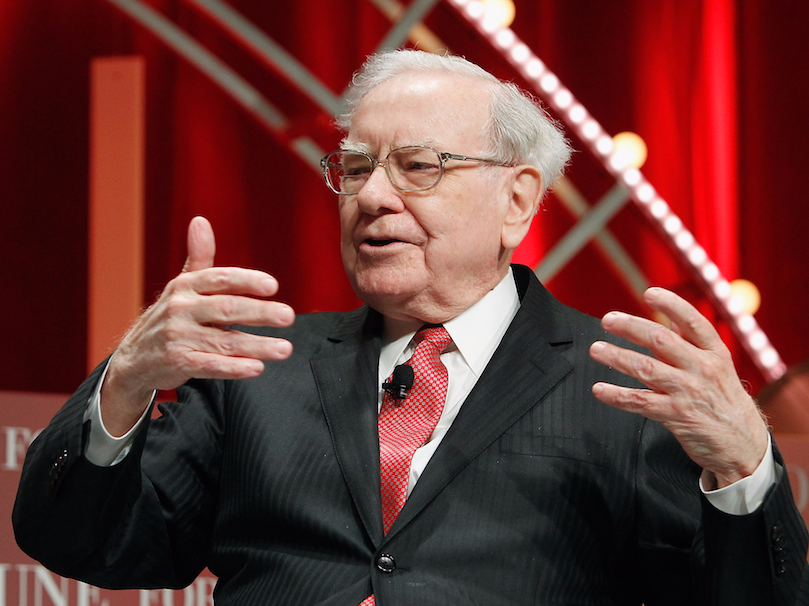- Warren Buffett gave a crystal-clear explanation of how financial bubbles form in a 2010 interview with the Financial Crisis Inquiry Commission (FCIC).
- “You can get in a whole lot more trouble in investing with a sound premise than with a false premise,” he said.
- With housing, for example, the trouble starts once people begin to buy because they really believe prices would go up.
Warren Buffett, Berkshire Hathaway’s CEO, has said cryptocurrencies “definitely will come to a bad ending.”
He was speaking in January on what’s probably the highest profile financial-bubble suspect right now.
When he publishes his annual letter to shareholders on Saturday, readers will be checking for anything he adds on bitcoin and other cryptos.
These definitely aren’t the first examples of bubbles he’s seen. Back in 2010, in an interview with the Financial Crisis Inquiry Commission (FCIC), Buffett answered several questions about what he thought caused the housing and credit bubble.
He also gave a crystal clear explanation of how bubbles are formed.
It's a great read for anyone interested in investing or behavioral economics.
The interview comes from a recent document dump from the National Archives, which released transcripts, meeting agendas, and confidentiality agreements from the FCIC. The group was set up in the aftermath of the crisis by Congress to look into the causes of the event.
Anyway, here's Buffett (emphasis ours):
"... My former boss, Ben Graham, made an observation 50 or so years ago to me that it really stuck in my mind and now I've seen evidence of it.
He said, 'You can get in a whole lot more trouble in investing with a sound premise than with a false premise.'
If you have some premise that the moon is made of green cheese or something, it's ridiculous on its face. If you come out with a premise that common stocks have done better than bonds [... that] became the underlying bulwark for the [1929] bubble. People thought stocks were starting to be wonderful and they forgot the limitations of the original premise [....] So after a while, the original premise, which becomes sort of the impetus for what later turns out to be a bubble is forgotten and the price action takes over.
Now, we saw the same thing in housing. It's a totally sound premise that houses will become worth more over time because the dollar becomes worth less. [...]
And since 66% or 67% of the people want to own their own home and because you can borrow money on it and you're dreaming of buying a home, if you really believe that houses are going to go up in value, you buy one as soon as you can. And that's a very sound premise. It's related, of course, though, to houses selling at something like replacement price and not far outstripping inflation.
So this sound premise that it's a good idea to buy a house this year because it's probably going to cost more next year and you're going to want a home, and the fact that you can finance it gets distorted over time if housing prices are going up 10 percent a year and inflation is a couple percent a year. Soon the price action - or at some point the price action takes over, and you want to buy three houses and five houses and you want to buy it with nothing down and you want to agree to payments that you can't make and all of that sort of thing, because it doesn't make any difference: It' s going to be worth more next year.
And lender feels the same way. It really doesn't make a difference if it's a liar's loan or you know what I mean? [...] Because even if they have to take it over, it's going to be worth more next year. And once that gathers momentum and it gets reinforced by price action and the original premise is forgotten, which it was in 1929.
The Internet was the same thing. The Internet was going to change our lives. But it didn't mean that every company was worth $50 billion that could dream up a prospectus.
And the price action becomes so important to people that it takes over the - it takes over their minds, and because housing was the largest single asset, around $22 trillion or something like that, not above household wealth of $50 trillion or $60 trillion or something like that in the United States. Such a huge asset. So understandable to the public - they might not understand stocks, they might not understand tulip bulbs, but they understood houses and they wanted to buy one anyway and the financing, and you could leverage up to the sky, it created a bubble like we've never seen."
You can check out the full interview with Warren Buffett at the National Archives.
This post was originally written by Elena Holodny.

